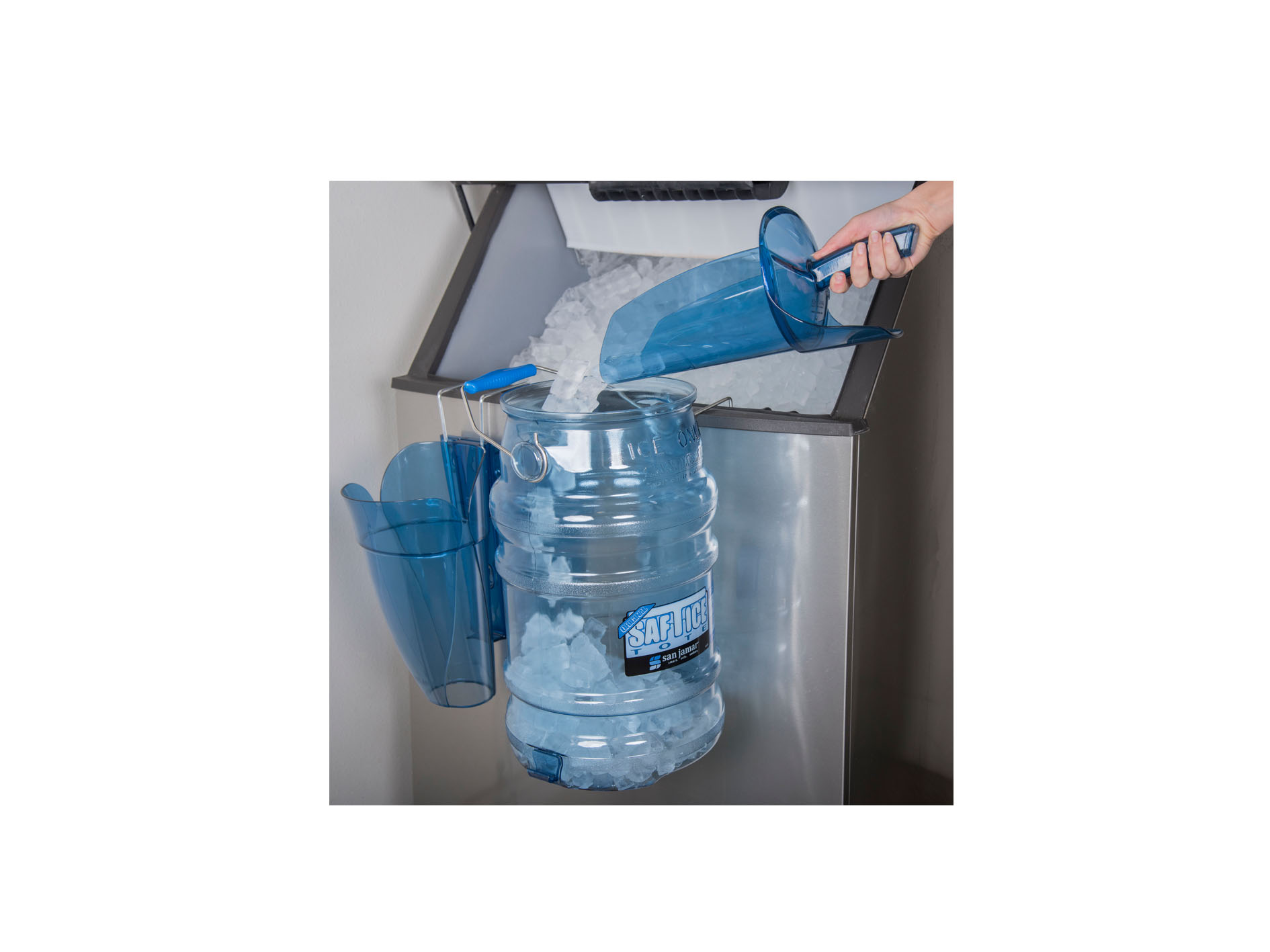Watchdog highlights cinema drinks – FEM argues modern equipment makes ice hygiene simple.
The regular media stories about ice hygiene highlight the fact that some operators, or their staff, simply don’t care enough, according to FEM. “The problem of ice hygiene has been tackled extensively and there are plenty of solutions that make it very easy to keep things clean,” says Mark Hogan, commercial director of FEM. “While the law treats ice as a food, many people still have too casual an attitude to ice hygiene. It’s time the industry got it sorted.”
Hogan says the key issue is the way staff handle ice. There are now specialist ice scoops that have guards to ensure there’s no way ice and skin come into contact. Similarly, when ice needs to be moved around, there are cleverly designed ice carriers that minimise the risk of contamination. “These scoops and carriers are easy to use and look after – there’s no excuse for poor ice hygiene when equipment like this exists, especially as it’s inexpensive and readily available.”
For example, San Jamar is one of the manufacturers specialising in this type of equipment. Its Saf-T-Ice Scoop range starts at just £40.10, while its light duty ice carrier has a list price of just £39.65.
Meanwhile, most modern ice machines are designed to be easy to clean – some, such as FEM’s Manitowoc Ice range, have self-cleaning functions that make life even easier.
“It’s very frustrating that, with all the effort and innovation that’s gone in to developing ice machines and accessories, there is still a problem with hygiene,” says Hogan. “The supply chain really needs to emphasise the issue to end users, and ensure that staff are not only thoroughly trained, but also understand the real safety dangers that poor ice hygiene creates.”

